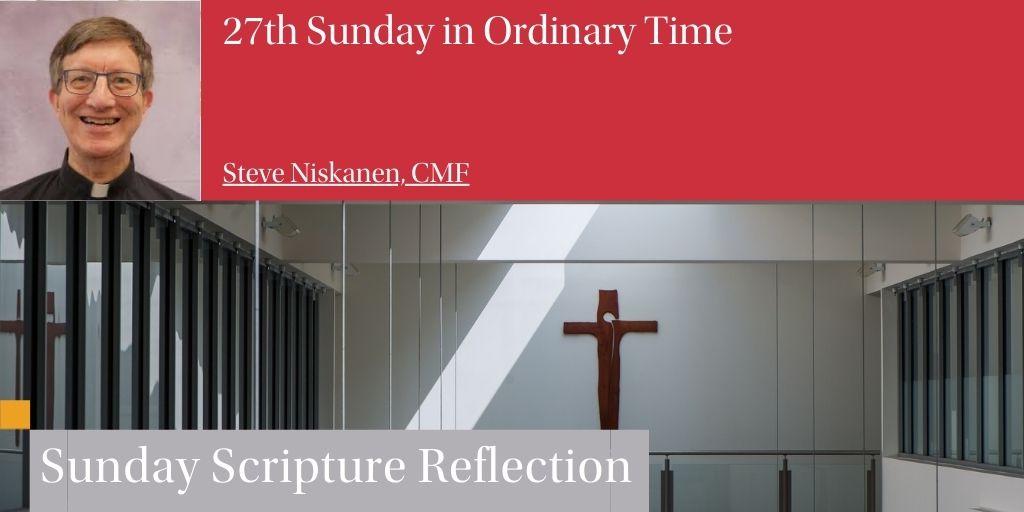
Readings:
Gn 2:18-24
Ps 128:1-2, 3, 4-5, 6
Heb 2:9-11
Mk 10:2-16 or 10:2-12
The mystery, beauty, and sometimes highly demanding nature of the human relationship which we call “marriage” is front and center in today’s readings.
Most, though not all, human beings in the course of their lives choose to marry, drawn by sexual, emotional, and spiritual attraction to another who has revealed her or himself to be a “suitable partner” for the journey of life, including in most cases having and nurturing a family together. Both Jesus and the author of the Genesis story have a high view of marriage as an original blessing of God. Jesus prophetically interprets the designs of God further in controversy with the Pharisees, teaching that God’s call to the man and woman in marriage is to a “one flesh” unity which cannot be simply dissolved by decree. Clearly, in Jesus’ mind and that of the church that receives his teaching, God desires that marriage be a communion of persons who are loving, learning, and growing together in relative peace and happiness until parted by death.
Yet we know that not all marriages endure. According to a 2014 General Social Survey published by the US Bishops, 8.7% of Catholic adults described their current marital status as divorced and 20.7% reported having experienced divorce at some point in their life. Our many divorced and separated brothers and sisters may find it hard to hear today’s readings as good news, especially if they find themselves in so-called “irregular situations”, such as a second or third marriage celebrated without Church approval, or if they find themselves alone as a single parent with no prospective partner either desired or in sight. These brothers and sisters may be tempted to think they have failed and no longer really belong to their communities of faith.
Pope Francis, in his apostolic exhortation Amoris Laeticia calls the ministers of the church to renewed efforts in accompanying persons who have experienced divorce, and to discerning possible paths with them to reconciliation and inclusion. He says:
It is important that the divorced who have entered a new union should be made
to feel a part of the Church. “They are not excommunicated” and they should not
be treated as such, since they remain part of the ecclesial community. (AL 243)
To paraphrase St. Paul, the happily married and single cannot say to the divorced, separated and remarried “we do not need you” (1 Cor 12: 21-27). We need one another in the one, broken, but healing body of Christ!
Our separated, divorced, and remarried members of our faith family teach us that love cannot be forced or programmed, and that the development of love between spouses requires of each partner a significant degree of maturity and self-giving. They are also a witness to us of brave resilience, to the bearing of pain and loss in faith and hope, and to the capacity of accepting the gift of others’ love into their lives again, either as friends or lovers. Even as the church decries the destructiveness of divorce, it cannot ignore God’s perpetual call to friendship and love: “It is not good for the (hu)man to be alone” (Gen 2:18).
